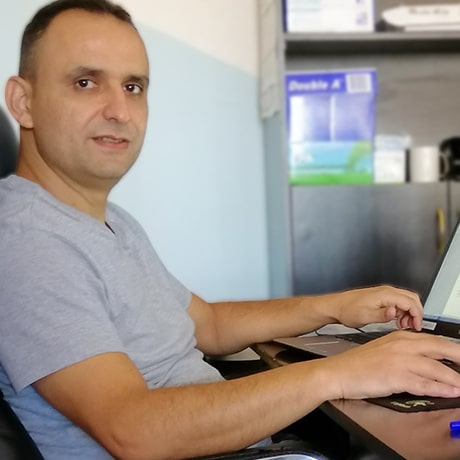Becoming a professional in humanitarian logistics is no normal job. It is about saving and improving the lives of those people affected by natural or man-made disasters. Hence, it requires specific technical and soft skills.
On the hard skills part, humanitarian organizations look for professionals with a degree and experience in supply chain management, preferably internationally. On the soft skills part, it is fundamental to be prepared and excited by a changing and often challenging environment.
To better understand what it means to work in humanitarian supply chain management, we have interviewed Ali. He is a logistician for the International Committee Of The Red Cross (ICRC) and he is currently studying our Master in Operations Management and Logistics.
Humanitarian logistics in disaster relief operations
Before reading the interview, let’s try to figure out what it means to work in humanitarian logistics. Supply chain management in disaster relief operations is an area filled with unpredictability, in which time is of the essence to save lives. Every time that an emergency occurs, the logistics and supply chain departments of humanitarian organizations have to be ready to deliver emergency supplies within the shortest time.
For this, humanitarian organizations usually have warehouses located in strategic points across the world, with close access to international airports. Two examples can help us discover how humanitarian logistics work in practice.
In November 2020, clashes in Côte d’Ivoire forced 15,000 Ivorians to seek refuge into Liberia. To respond to this humanitarian crisis, UNHCR, the UN Refugee Agency, sent supplies from UNHCR’s stockpile in Amman, Jordan, to Monrovia, the capital of Liberia. A total of 95 tons of blankets, jerry cans, kitchen sets, plastic sheets, and solar lamps with a value of over US$300,000 were airlifted.
In the second example, the emergency was caused by a natural disaster. On August 14, a magnitude 7.2 earthquake shook Haiti causing thousands of deaths and injuries. To respond to this humanitarian crisis, MSF (Doctors Without Borders) sent 100 tons of emergency supplies from their warehouse in Belgium to Haiti. In just a matter of days, tents, materials to install emergency drinking water supply systems for at least 30,000 people, and medical supplies for the care of 30,000 patients were delivered to Port au Prince, Haiti’s capital.
Humanitarian logistics during Covid-19 times
Covid-19 has caused major disruptions to the supply chain of every company, including humanitarian organizations. In an interview, Vicente Escribano, head of UNHCR’s Supply Management Service, declared: ‘The pandemic has stressed production and transportation in unprecedented ways.’
It happened because of two main challenges deeply connected to humanitarian logistics.
Price:
Humanitarian organizations work with a limited budget, so they have to find the best solution with limited economic resources. However, since the beginning of the pandemic, it has become increasingly difficult as prices have skyrocketed.
Timely assistance:
As we have seen from the examples at the beginning of Understanding humanitarian logistics: Meet Ali, rapid delivery is crucial for humanitarian logistics. For example, UNHCR delivers in less than 72 hours. But with the closure of borders, humanitarian organizations have had to find alternative solutions to get staff and cargo where they are most needed.
Understanding humanitarian logistics: Meet Ali
We have interviewed Ali, one of our students from the Master in Operations Management and Logistics, to better understand what it means to work in humanitarian logistics.
-Could you talk about your background?
I studied civil engineering and CHL (Certification in Humanitarian Logistics) and started my career in the oilfield sector in different posts, technician, safety officer, material coordinator, and warehouse manager in one of the best oilfield companies.
I joined the Humanitarian field in 2013, by working for ICRC Syria as a WH manager. Later, I got the post of Logistics Officer and currently, I am in the capacity of Logistician and deputy of the logistics center.
-What motivated you to work in a humanitarian organization?
After the conflict in Syria in 2011, we had limited good employers, and humanitarian organizations were one of the best. Frankly, in the beginning, my concern was only to find a good income, to secure my family during these tough security & economic situations.
But once I started working at ICRC, my life has changed to a different level. It’s a job in which you can be part of saving lives, alleviate suffering, and helping the most vulnerable people. No matter their religion, ethnic or location background.
-Could you tell us what a logistician in a humanitarian context does? What are the main tasks and most important factors to consider in this job?
A Logistician in humanitarian settings harmonizes and coordinates the relation and activities within the logistics department. They are the focal point between logistics and other departments in addition to local authorities too. In simple words, the tasks and responsibilities of a Logistician in ICRC are to design and supervise sourcing the goods and services for the beneficiaries and deliver it in good quality, at the required place and suitable time, at a reasonable price. Our ultimate goal is to fulfill the requests and beneficiaries’ needs. Their satisfaction is one of our most important indicators of success.
-How is your typical day at the International Committee Of The Red Cross (ICRC)?
What I like about my current job in ICRC is that we do not have a typical day, as due to the rapid changes in the security & economic situation within Syria, new challenges are raised up on a daily basis. In addition to our typical activities, we have to be creative and flexible to assess the situation and adjust our process accordingly. We need to find solutions for these challenges to guarantee a smooth operation.
-What are the main challenges of working as a logistician for ICRC?
In general, humanitarian logistics is similar to commercial one except when you want to target front-line beneficiaries. You cannot reach them every day, so whenever we have a chance to reach them, we have to. During this kind of operation, the cost or effort is not our priority. This is not classified only as a challenge; it could be a matter of saving lives.
-And what is the main reward?
When you are able to draw a smile on children’s faces in this ferocious war, you cannot receive a better reward than those smiles.
-What convinced you to pursue a Master in Operations Management and Logistics?
I have more than 15 years of experience in the logistics field. I wanted to get acquainted with the latest developments in the field, learn from the practical experience of my professors and exchange knowledge with my classmates.
Boredom should not creep into our hearts. Every day you can learn new things. Studying helps to engage in this educational mindset.
– What do you like the most about studying online at BEBS?
I have had previous experience in studying online since 2016, but Covid-19 forced most of the organizations to change their mind into distance study, even some companies started thinking about working from home.
Studying online at BEBS gives you the flexibility to study whenever you have time. You save the time of transportation and you can work full-time work, so you don’t affect your professional life.
It is a great experience, especially the interaction forum in BEBS, where you can discuss with your professors, classmates and exchange experiences.
Thanks to BEBS for this well-designed and organized structure.



